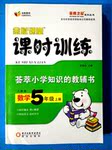题目内容
7.John was part of my childhood growing up in the 1970s and a link to sunny,fun-filled days spent on the beach at Bangor in the Northern Ireland where we went for our summer holidays.To many,he was a mystery.Every afternoon John would wander to the end of the pier(码头) where he fed the seagulls(海鸥)and delighted in the sound of their excited cries as they flew around his head.Often I asked my family questions regarding John.Eventually I gave up as no one could tell me anything about him.As I grew up,my visit to the beach became less frequent,and my memories of John buried in a child's imagination.
Last year memories came flooding back as I walked along the coastline,where I noticed a lady feeding the seagulls on the pier,and I decided to introduce myself.Then I came to know that the lady was John's daughter,and after John left this world she carried out the ritual (惯例),which had held such importance for her father.
In some strange way I felt we shared a bond,each needing to remember.In return,Lucy told me of John's life,his days in the British Navy(海军)during World War I and how he almost lost hope when his ship was attacked by a German U-boat in the North Sea and he found himself in a lifeboat with five others.
Close to death,he thought he heard the sound of wings.He put up his hands,only to catch a seagull that had landed on the side of the boat.The seagull saved the lives of the six men as it was used to catch fish,which kept them alive until they reached land.This period of John's life was one he never talked about.But the ritual he first performed as a young man remained a part of him until he died.
Now I visit Lucy as often as I can,just to chat or very often walk along the beach to the pier end.We enjoy the comfortable silence,each lost in special memories.
66.Seeing John feeding the seagulls,the author might feelC.
A.proud B.worried C.curious D.guilty
67.Why did the author introduce herself to the lady?D
A.She wanted to make more friends.
B.She was also fond of feeding seagulls.
C.She was told the lady was John's daughter.
D.She was attracted by what the lady was doing.
68.John survived(从…中幸存下来) the attack because ofA.
A.a seagull
B.a German U-boat
C.his daughter
D.the British Navy
69.We can infer from the text that JohnB.
A.once served in both world wars
B.was a man with a grateful(感恩的)heart
C.spent all his life in Bangor
D.joined the navy in the 1970s
70.What does the author mainly tell us in the text?C
A.She expressed her thanks to a seagull that saved her life.
B.She told us the story of how she made friends with a lady.
C.She shared with us her memories of a man who fed seagulls.
D.She talked about her childhood spent on the beach at Bangor.
分析 本文属于故事类文章,作者通过回忆John喂海鸥这件事情认识了John的女儿,并了解到了John因海鸥救了他的命,心存感恩,坚持喂海鸥这个好习惯.
解答 CDABC
66C 细节理解题.根据文章第一段的To many,he was a mystery.可知看到John喂海鸥时作者感觉他很神秘,所以很好奇,故选C
67D 细节理解题.根据文章第三段的Last year memories came flooding back as I walked along the coastline可知作者看到这位女士在海边喂海鸥而被此情景吸引,故选D.
68A 细节理解题.根据文章第五段的The seagull saved the lives of the six men as it was used to catch fish,可知海鸥救了他们六个人的性命,故选A.
69B 推理判断题.根据文章第五段的But the ritual he first performed as a young man remained a part of him until he died.可知John因海鸥救了他的命,坚持在海边喂海鸥这个习惯,可以证明John是个感恩的人,ACD与文意不符,故选B.
70C 主旨大议题.通读全文可知作者和我们分享了一个在海边喂海鸥的人的回忆故选C.
点评 这是一个短篇故事,这类文章一般描述的是某一件具体事情的发生发展或结局,有人物、时间、地点和事件.阅读这类材料时,同学们一定要根据主要情节掌握文章主旨大意,同时抓住每一个细节,设身处地根据文章内容揣摩作者的态度和意图,根据情节展开想象,即使是碰到深层理解题也可迎刃而解.

练习册系列答案
 小学课时作业全通练案系列答案
小学课时作业全通练案系列答案 金版课堂课时训练系列答案
金版课堂课时训练系列答案
相关题目
2.I took four books with me when I went travelling _____ I got bored,but I never read a page!( )
| A. | in case | B. | so that | C. | as long as | D. | as soon as |